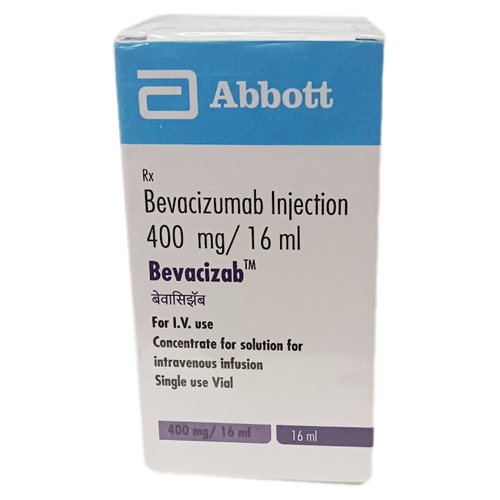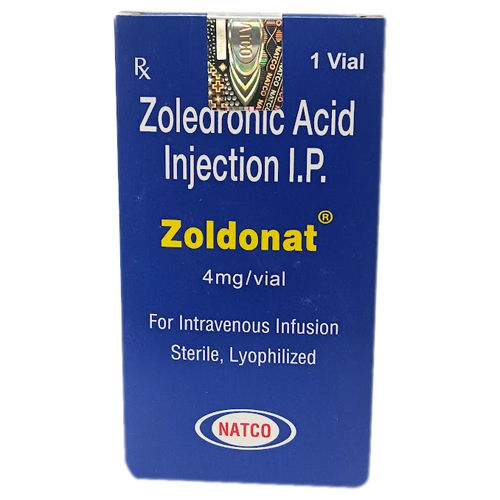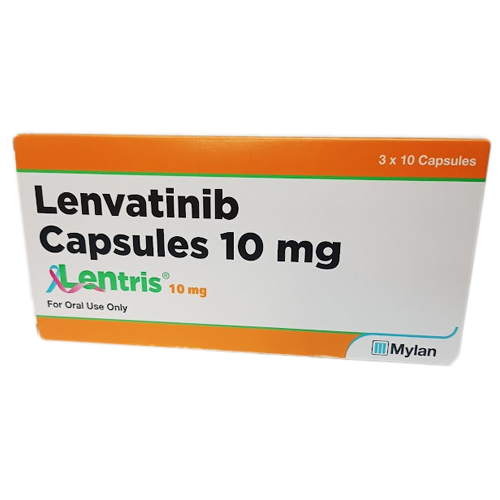Bevacizumab Injection
Product Details:
- Drug Type Injection
- Physical Form Injection
- Dosage Guidelines As per physician
- Storage Instructions Keep dry & cool place
- Click to View more
Bevacizumab Injection Price And Quantity
- 38000 INR/Vial
- 10 Vial
Bevacizumab Injection Product Specifications
- Keep dry & cool place
- Injection
- Injection
- As per physician
Bevacizumab Injection Trade Information
- 1000 Vial Per Week
- 4 Days
- Asia Australia Central America North America South America Eastern Europe Western Europe Middle East Africa
- Maharashtra Dadra and Nagar Haveli Manipur Chhattisgarh Himachal Pradesh Jharkhand Punjab Meghalaya Chandigarh Assam Mizoram Bihar Nagaland West Bengal Kerala Uttarakhand Gujarat South India Madhya Pradesh Sikkim Tripura Odisha Jammu and Kashmir East India Daman and Diu Andaman and Nicobar Islands Haryana Arunachal Pradesh Pondicherry Karnataka Telangana Delhi North India Lakshadweep Andhra Pradesh Uttar Pradesh Rajasthan Tamil Nadu Goa Central India West India All India
Product Description
Bevacizab Injection is an anticancer medication. It is used in the treatment of cancer of colon and rectum, non-small cell lung cancer, kidney cancer, brain tumor, ovarian and cervical cancer. It helps to prevent the growth of new blood vessels that feed tumors and stops tumors from growing.
Here are some frequently asked questions (FAQs) about Bevacizumab Injection:
-
What is Bevacizumab Injection?Bevacizumab Injection is a medication used in the treatment of various cancers, including colorectal cancer, lung cancer, kidney cancer, cervical cancer, and certain types of brain tumors.
-
How does Bevacizumab Injection work?Bevacizumab works by inhibiting the activity of vascular endothelial growth factor (VEGF), a protein that promotes the growth of new blood vessels. By blocking VEGF, Bevacizumab helps to prevent the formation of new blood vessels in tumors, thereby depriving them of the nutrients and oxygen they need to grow.
-
What conditions does Bevacizumab Injection treat?Bevacizumab Injection is used in the treatment of various types of cancer, including metastatic colorectal cancer, metastatic non-small cell lung cancer, metastatic renal cell carcinoma, recurrent glioblastoma (a type of brain tumor), and certain types of cervical and ovarian cancer.
-
How is Bevacizumab Injection administered?Bevacizumab Injection is administered as an intravenous infusion (into a vein) by a healthcare professional in a clinic or hospital setting. The dosage and frequency of administration will depend on the patient's specific condition, medical history, and treatment plan.
-
What are the common side effects of Bevacizumab Injection?Common side effects of Bevacizumab Injection may include high blood pressure, fatigue, proteinuria (protein in the urine), bleeding or easy bruising, nosebleeds, headache, and gastrointestinal perforation (a rare but serious side effect). It's important to report any side effects to your healthcare provider.
-
Who should not take Bevacizumab Injection?Bevacizumab Injection may not be suitable for everyone. Patients with certain medical conditions, such as uncontrolled high blood pressure, a history of bleeding or blood clotting disorders, or a perforation in the gastrointestinal tract, may not be able to take Bevacizumab Injection safely. It's crucial to inform your healthcare provider about your medical history and any medications you are currently taking before starting Bevacizumab Injection.
-
Is Bevacizumab Injection safe during pregnancy and breastfeeding?Bevacizumab Injection may cause harm to a developing fetus and is not recommended for use during pregnancy. It is also not known whether Bevacizumab Injection passes into breast milk, so breastfeeding is typically not recommended while receiving treatment with Bevacizumab Injection. It's essential to discuss the risks and benefits with your healthcare provider if you are pregnant, planning to become pregnant, or breastfeeding.
-
Are there any interactions with other medications?Bevacizumab Injection may interact with other medications, including other cancer treatments and medications that affect blood clotting. It's crucial to inform your healthcare provider about all medications you are taking, including prescription drugs, over-the-counter medications, vitamins, and supplements, to avoid potential interactions.

Price:
- 50
- 100
- 200
- 250
- 500
- 1000+







 Contact Us
Contact Us Call Me Free
Call Me Free
